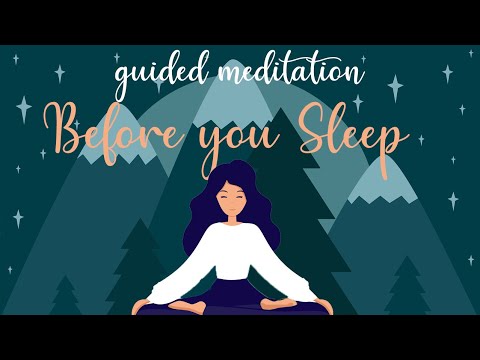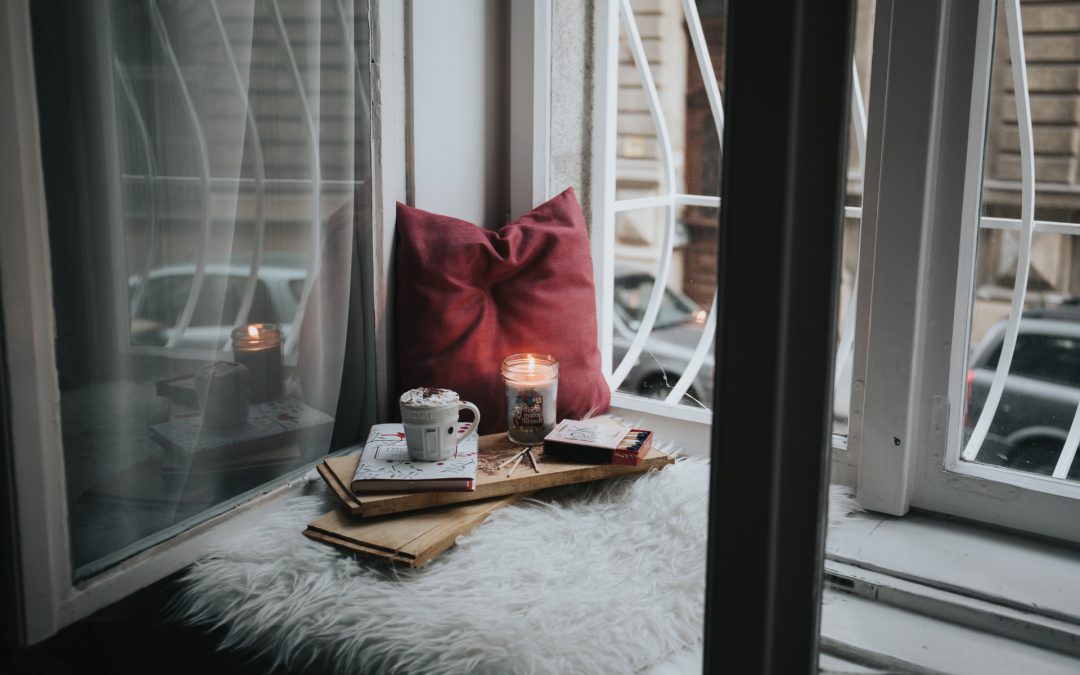If you’re having trouble falling asleep at night, you’re not alone. An estimated 70 million Americans have chronic sleep issues. The problem isn’t necessarily a medical one (although it can be). In many cases, it’s just a matter of learning how to wind down for the night and establishing a healthy sleep routine.
If you’re not sure where to start, we have some simple tips to help you relax before bed. Winding down for the night isn’t as hard as it seems!
14 Ways to Wind Down for the Night

1. Disconnect from Social Media
If you want to wind down before bed and calm your mind, disconnect from social media. Close out Instagram, Facebook, Twitter and whatever other social media apps you use for the night.
Here’s why social media is sabotaging your sleep:
- Smartphones emit blue light that messes with your body’s production of melatonin and your circadian rhythm. When your sleep-wake cycle is out of whack, it’s harder to fall asleep and wake up in the morning.
- Social media keeps your mind stimulated. Whether you’re chatting or just scrolling, the content you see will keep your mind going.
To give your mind a chance to settle down and relax, try closing out all social media apps an hour or two before bed. If you’re used to scrolling or chatting before bed, try doing one of the other relaxing activities on our list instead.
2. Diffuse Essential Oils
Aromatherapy is a great way to unwind at the end of the day. The right essential oils can make you feel more relaxed and ready to drift off to sleep.
Aromatherapy’s effectiveness is more than just hearsay.
One study looked at the effects of aromatherapy on sleep, anxiety and blood pressure in cardiac ICU patients. The aromatherapy group had less anxiety, lower blood pressure and better sleep after cardiac stent insertion compared to the control group.
Here are some great essential oils for winding down:
- Lavender
- Chamomile
- Clary sage
- Rose
- Bergamot
- Valerian
- Jasmine
You can also find essential oil blends made just for sleep or relaxation.
3. Use White Noise
Sometimes, it can be challenging to relax and unwind at night because there’s just too much noise around us. It could be neighbors, other family members or just the traffic outside.
A white noise machine can help block out noise that may be keeping you from relaxing and getting into that sleep state of mind. And once white noise becomes part of your nightly machine, your mind will associate the sound with sleep and make it easier to fall asleep.
Best of all, most white noise machines are small and portable, so you can take them with you wherever you go.
4. Get Moving
Exercise and sleep are intimately linked. Just 30 minutes of moderate cardio exercise a day can help you sleep better. And you can start seeing results immediately. Even if you haven’t exercised in years, getting moving for just 30 minutes today can help you get better sleep tonight.
Avoid exercising too late in the day or you’ll feel energized instead of tired before bed.

5. Try Breathing Exercises
Whether you’re feeling stressed or just having trouble quieting your mind at night, deep breathing exercises can help you relax and unwind.
The great thing about breathing exercises is that you don’t need anything special to get started. You only need a few minutes of your time.
Here’s a simple breathing exercise to try:
- Start by lying down with your legs straight out in front of you. Keep your legs slightly apart and your arms gently at your sides, palm sides up.
- Place one hand on your chest and the other on your stomach.
- Close your eyes.
- Take a deep breath in and focus on filling your abdomen.
- Exhale slowly.
- Repeat for 5-10 minutes or however long you have.
Practice this breathing exercise every night and before bed to help your body get into a more relaxed state and ready for sleep.
6. Improve Your Sleep Hygiene
One of the best ways to wind down for the night is to work on your sleep hygiene. Establishing a solid night routine can help you fall asleep faster and wake up feeling more refreshed. When you practice the same habits every night, it will let your body know it’s time for bed. As a result, your body will naturally learn to relax and get into the right mindset for sleep.
The first step is to go to sleep and wake up at the same time every day.
Learn How to Get to Bed on Time.
Here are some other ways to improve your sleep hygiene:
- Give yourself 30 minutes for winding down.
- Try to avoid taking naps during the day. Overdoing it with naps can make it harder to fall asleep and stay asleep.
- Set the mood. Dim the lights, put your smartphone away and slip into something comfortable.
- Keep the room at a cool temperature. Experts say that 65 degrees Fahrenheit is ideal for sleeping.
- Use black-out curtains if your room is too bright at night. Light can mess with your circadian rhythm.
- Use comfortable blankets and sheets.
- Invest in a high-quality mattress and pillow.
The important thing is to create a comfortable, relaxing environment for sleep and winding down.
7. Take a Relaxing Warm Bath
It may sound cliché, but a relaxing bath may be just what you need to wind down at night. Make it a part of your nightly routine and do it with intention.
- Make it a bubble bath or use bath bombs.
- Light some candles.
- Diffuse some essential oils.
- Put on soft, calming music.
Make sure that you give yourself time to enjoy and relax your bath. Don’t rush it, and don’t let distractions get in the way.
8. Read a Book
Instead of scrolling on your phone before bed, try reading a book instead. Reading is a great way to relax and unwind after a long day.
In addition to helping you relax, reading can:
- Improve sleep quality
- Help improve your cognition over the long-term
- Improve creativity
Making reading a nightly habit can help you learn new things and even improve your focus during the day.
Choose any book that you love. It can be fiction, self-improvement, health, business or non-fiction. Just make sure that it’s engaging and entertaining.

9. Listen to Calming Music
Music can be a great way to unwind before bed, especially when choosing calming music.
One study found that listening to music can help you fall asleep faster. In that study, the participants started listening to music before bed. It took them 37-69 minutes to fall asleep before the study. However, once they added music to their nightly routine, they were able to fall asleep in just 6-13 minutes.
Along with falling asleep faster, the participants also found that their sleep quality improved.
Steer clear of energizing music if you want to relax and fall asleep. Classical or meditation music can set that calming atmosphere that can help you get into the right state of mind.
10. Write in Your Journal
Stress and anxiety about the next day can make it harder to wind down and relax before bed. Journaling can help reduce worry and stress while improving sleep quality.
Set aside 10-15 minutes before bed for journaling. What’s making you anxious about tomorrow? Can you create a to-do list to help you tackle the day’s tasks?
You can also journal about the positive experiences you had today or the things you are grateful for.
Writing about your worries can be very therapeutic and practicing gratitude before bed can help you sleep more soundly.
11. Try Stretching
Stretching is a great way to ease tension, improve blood flow and help you feel more relaxed before bed. With all of that stress and tension out of the way, you can get into a deep state of relaxation, making it easier to fall asleep.
Your nightly stretching routine doesn’t have to be complicated either.
Try this simple stretching routine!
10 min Evening Yoga Stretch – Bedtime Yoga for Beginners

12. Meditate
Sleep can be elusive when we have so many things on our minds. Calming your mind and letting your thoughts drift away can help you slip into a state of relaxation that makes it easy to fall asleep.
Like stretching, meditation can help ease tension and stress.
If you’re new to meditation, you may find it easier to use a guided meditation practice to help you learn the ropes.
Here’s a guided meditation to help you get started:
10 Minute Meditation for Before You Sleep

Winding down for the night is an integral part of the sleep process. Use these tips to help you get into a more relaxed state before turning in for the night.
Rene is a creative, little gnome. When she's not diving deep into research on health and wellness, she's spending here time out in nature, growing her homestead, photographing wildlife, doing yoga or enjoying a zen (depending on the day) moment with her fur babies. And on top of all of that, she's a professional writer by day, helping businesses around the world grow.

